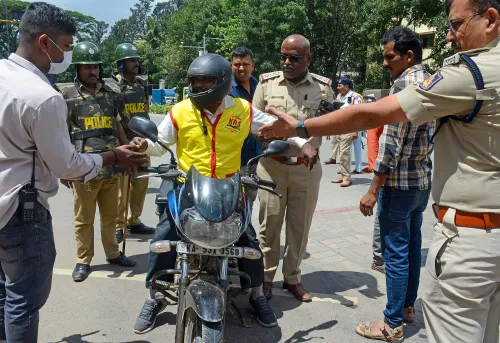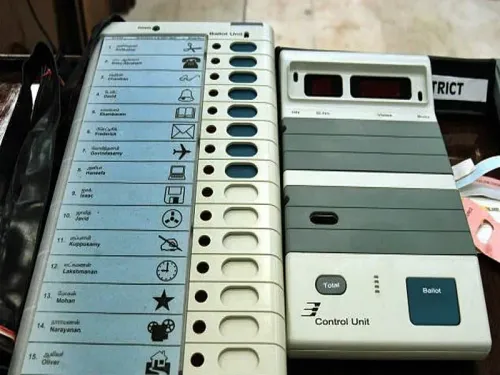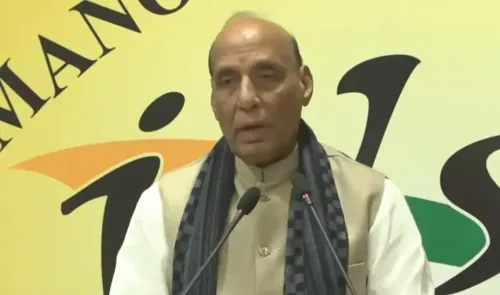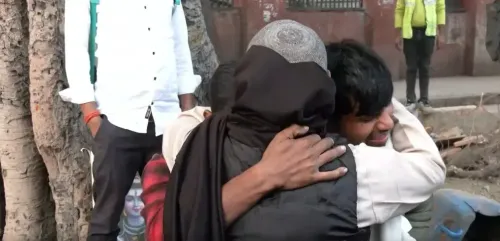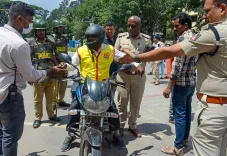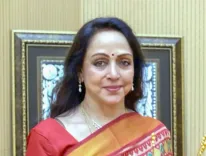Did J&K L-G Honor Maharaja Hari Singh on His 130th Birth Anniversary?
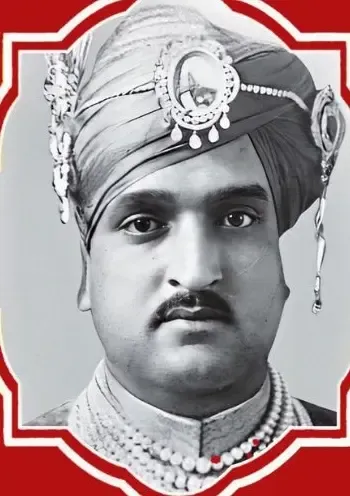
Synopsis
Key Takeaways
- Lieutenant Governor Manoj Sinha paid tribute to Maharaja Hari Singh.
- The Maharaja's birthday is now a public holiday.
- Significant reforms were introduced during his reign.
- Dr. Karan Singh succeeded him as regent.
- The Treaty of Amritsar marked the start of Dogra rule.
Srinagar, Sep 23 (NationPress) The Lieutenant Governor of Jammu and Kashmir, Manoj Sinha, paid his respects on Tuesday to the late Dogra Maharaja Hari Singh in commemoration of his 130th birth anniversary.
In a message on his X account, he stated, “I pay my tributes to Maharaja Hari Singh Ji on his Janm-Jayanti. A remarkable statesman and a catalyst for change, he implemented significant reforms aimed at enhancing the welfare of the common people. His enduring legacy of inclusive governance and a progressive vision continues to motivate us.”
Following the abrogation of Article 370 and the reorganization of J&K into two union territories, Maharaja Hari Singh’s birthday was declared a public holiday.
Post-1947, Dr. Karan Singh, the son of Maharaja Hari Singh, served as the regent and was known as ‘Sadr-e-Riyasat’ of J&K.
In 1964, Dr. Karan Singh became the inaugural Governor of Jammu and Kashmir.
The Dogra dynasty governed J&K after Maharaja Gulab Singh signed the Treaty of Amritsar with the British in 1846, marking the start of their rule.
Originally a commander within the Sikh Empire, Maharaja Gulab Singh allied with the British during the First Anglo-Sikh War and briefly held the position of Prime Minister of the Sikh Empire in the same year.
In 1846, he formalized the establishment of the state of Jammu and Kashmir under British suzerainty by signing the Treaty of Amritsar, which confirmed the transfer of lands from the Sikhs to the British as per the Treaty of Lahore.
Maharaja Gulab Singh was succeeded by Maharaja Ranbir Singh, then Maharaja Pratap Singh, and finally the last Dogra Maharaja, Hari Singh.
In 1923, after the passing of his uncle, Hari Singh ascended as Maharaja of Jammu and Kashmir.
After India gained independence in 1947, Maharaja Hari Singh chose to accede to India to secure military assistance against an invasion by tribal forces from Pakistan.
He remained the titular Maharaja until 1952, when the monarchy was dissolved by the Indian government.
Spending his last days in Mumbai, he passed away on April 26, 1961.
In tribute to his grandfather, Vikramaditya Singh, a former member of the Jammu & Kashmir Legislative Council, shared on X, “Warm congratulations and best wishes to all citizens of Jammu-Kashmir on the birth anniversary of Maharaja Hari Singh Ji! Paying my respects to my grandfather, Maharaja Hari Singh of Jammu & Kashmir on his 130th birth anniversary!”

